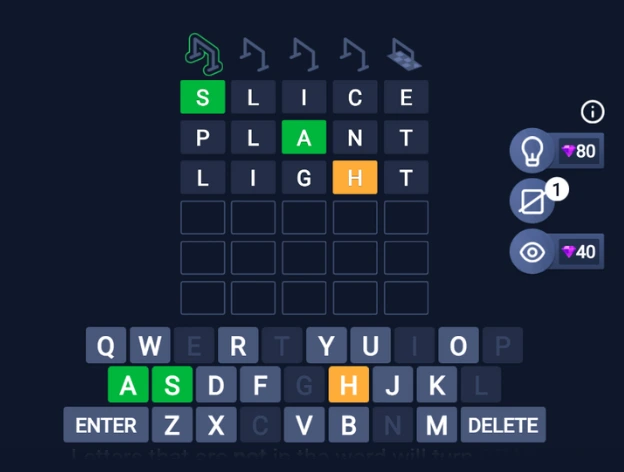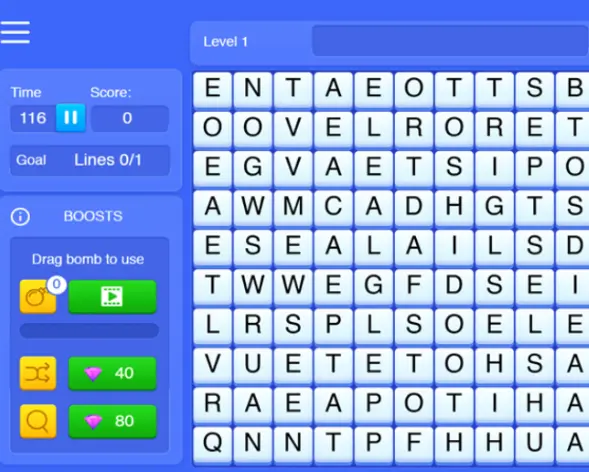Guest Contributor: Tim K
Good news: you don’t have to be a born-and-bred logophile (lover of words) with a huge vocabulary to seriously up your word game…game.
Sure, an encyclopedic lexicon certainly helps (we’ll tone down the 5-dollar words now), but just as important as your vocabulary is your ability to capitalize on each word game’s bonus point opportunities, recognize common word patterns, and build off of known words to create similar alternatives.
In this guide to all things word games, we’re going to share with you a comprehensive list of simple yet powerful tips for word games and strategies that you can use to take those word game scores from humdrum to terrific.
Learning the Landscape: Types of Word Games and How They Challenge You
First of all, it’s mighty difficult to train for a “sport” if you have no idea what the rules are or how to score points. With that in mind, let us take you on a tour of the most common types of word games, from centuries-old classics to modern twists.
Crosswords and Puzzles
Starting with one of the oldest and most popular word games out there, crossword puzzles require you to answer purposefully ambiguous clues. Your answer will be inserted into a messy grid of intersecting (horizontal and vertical) tiles. All you have is a very short clue (often one or two words long) and, thanks to the tiles, the number of letters.
As for word puzzle games, these can take many forms. For example, gamers who play Hurdle have to guess a mystery word with a limited amount of tries. Broadening the scope, this Categories game requires you to identify not just one but groups of words that share commonalities.
This is just the tip of the iceberg. There are many, many word puzzle games out there.
Anagram Games
An anagram is a word containing the scrambled-up letters of another word. For example, “listen” is an anagram of “silent.”
Word games that feature anagrams are among our favorites, going beyond simply flexing your vocabulary and requiring you to actually deconstruct and rearrange words in your mind like a robotics prodigy turning a toaster into a radio.
Ready to go anagram hunting? Picture some of your favorite words in your head and see if the letters can be rearranged to spell anything else.
Word Search Games
You can’t go wrong with a good old-fashioned word search. Simple, relaxing, yet not necessarily easy, the anatomy of a word search game is fairly straightforward.
Your job is to find a set of words arranged throughout a seemingly chaotic grid of random letters. You will be provided the words in advance; you have to sleuth them out by carefully searching the letter grid. Watch out for those backward and/or diagonal words!
Although the classic word search will always be a favorite, games like Word Wipe, have added fun twists and new mechanics, such as score multipliers and even bomb power-ups.
Vocabulary Builders
Finally, vocabulary builders can use one of several mechanics to help you flex and expand that internal word database of yours. For example, Scrabble-style games challenge you to create words from a limited set of letter options.
There are also plenty of word games out there that task you with matching fancy, esoteric words up with their definitions. Tricky, tricky!
Key Strategies for Word Game Success
To accommodate all of our fellow wordsmiths out there, it’s easiest to lay out our top tips for word games in terms of difficulty level.
Beginner Strategies
There’s no shame in taking advantage of shorter words when playing word games. Especially if you’re in a game that awards higher points for certain letters, you can even use short words to your advantage.
One of our favorite word game hints is to pay close attention to common prefixes and suffixes. For example, “re-,” “de-,” “-or,” and “-tion.” Recognizing and utilizing these effectively can make the difference between victory and defeat.
Finally, simply building vocabulary is an excellent strategy for beginners to increase their word game scores gradually. Dictionaries, novels, billboards, whatever: it’s all learning material.
Intermediate Strategies
Learning not only what words mean or how they’re spelled but how they naturally flow together in common parlance is an essential skill when playing word games. Taking advantage of this tip for word games gives you the context you need to finish half-words and/or to answer ambiguous clues.
For example, if the crossword clue is “Shave and a haircut,” your answer may be “Two bits!”
Advanced Strategies
Finally, building a repertoire of high-value words that you can keep in your back pocket is one of our favorite word game hints for more advanced word game players looking to throw down some serious points.
Words like “recalcitrant,” “indefatigable,” and “skullduggery” are among some of our favorites. Still, there are far too many to choose from to crown any word king.
It’s also important to maximize your use of score multipliers, bonus tiles, and other game-specific boosts if you want to get ahead seriously.
Keep a Fun-First Approach, And You’ve Won Already
We’re as competitive as the next word game whiz. Still, word games are all about giving your brain a relaxing yet stimulating break from the world and creating fond memories.
Just remember to share the tips and strategies you developed while becoming a word game expert in the comments.


